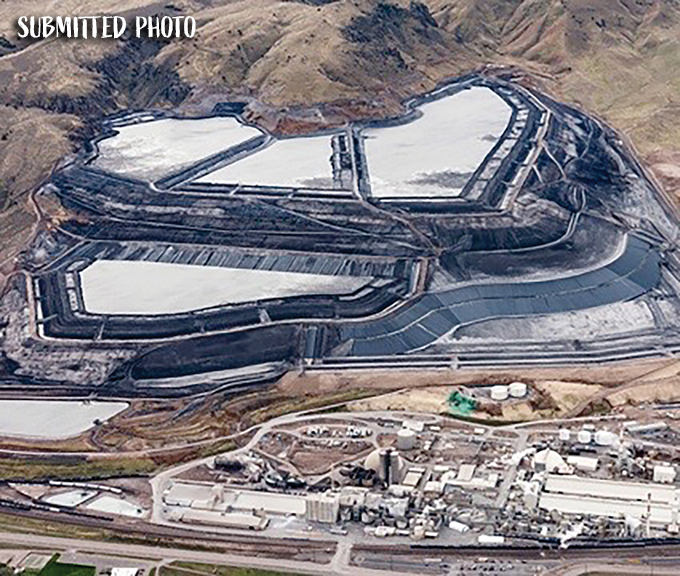Ninth Circuit Court of Appeals panel of judges rules in favor of Sho-Ban Tribes in Blackrock land exchange

Blackrock land exchange at Simplot Corporation.
By LORI ANN EDMO
Sho-Ban News
FORT HALL — A Ninth Circuit Court of Appeals panel ruled in August in favor of the Shoshone-Bannock Tribes regarding the Blackrock land exchange.
The panel affirmed the district court’s 2023 ruling that a proposed land exchange between the Bureau of Land Management and Simplot Corporation violates federal law and the government’s trust responsibility to the protect the interests of the Tribes in lands ceded under an 1898 agreement.
The case involved the Tribes challenge to a 2020 Record of Decision the Department of Interior issued to approve a land exchange that would result in the expansion of the Pocatello Simplot Don Plant gypsum stacks located on the on the Eastern Michaud Flats Superfund site.
The land exchange approves Simplot’s acquisition of 719 acres of federal land the BLM manages in exchange for 667 acres of non-federal land Simplot owns.
The Tribes said the federal lands selected for the exchange are part of the Tribes ceded territory and treaty area adjacent to the existing Simplot Don Plant and partially within the Eastern Michaud Flats NPL Superfund site. The non-federal land parcels that Simplot owns are located south of Pocatello in the Blackrock Canyon area.
The Tribes 2020 complaint reads for decades the Simplot Company has attempted to secure approval of the land exchange to facilitate continued operation of the phosphate processing activities. The phosphogypsum waste piles were created as a byproduct of Simplot’s activities have resulted in a Superfund site with an NPL designation that continues to pollute the Portneuf River and the Fort Hall Bottoms – an area that is critical for tribal subsistence hunting and fishing as well as tribal cultural and ceremonial practices.
The Tribes said if it is approved, the land exchange would allow Simplot to continue its unchecked pollution of the Fort Hall Indian Reservation.
In 1898 federal officials came to the Tribes to discuss ceding land back to the U.S. An agreement was reached and signed by the Tribes that resulted in a 1900 Act said Bill Bacon, tribal attorney. The Act had three ways for the U.S. to disposed of ceded land – homestead, townsite and mining acts; one person limited to 160 acres or sold at public auction. In 1976, Congress repealed most if not all homestead and townsite acts when it adopted the Federal Land Policy Management Act (FLPMA). FLPMA expressly states if the laws cited in the act are not repealed, FLMPA cannot impliedly repeal any law; Congress must expressly repeal any law relative to FLMPA, he explained.
BLM and Simplot, knowing the SBT opposed the land transfer because it violated the 1900 Act that was not repealed by FLPMA. The federal district court ruled the transfer violated the terms of the 1900 Act and FLPMA did not repeal the act and the Ninth Circuit agreed with the district court.
Either Simplot or the U.S. can now request a hearing before all of the Ninth Circuit judges or file an appeal to the Supreme Court of the United States, Bacon said.





